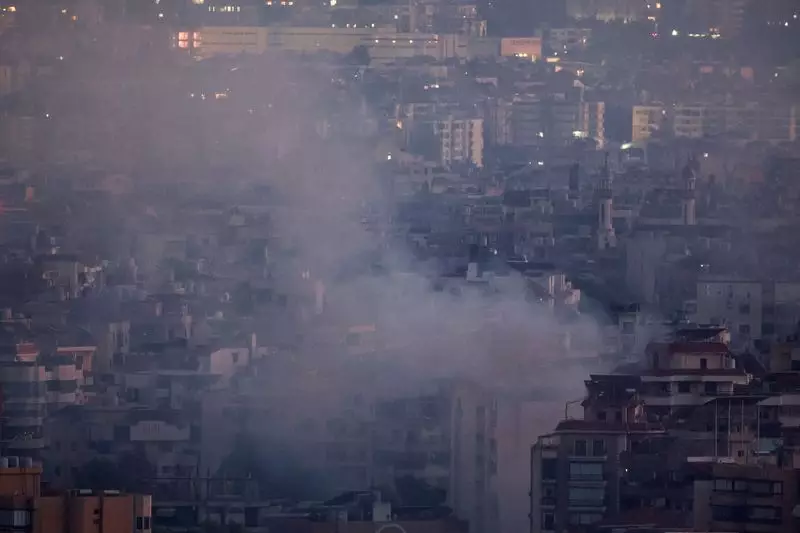The recent escalation of violence in Lebanon, marked by Israeli airstrikes that resulted in the deaths of three leaders of the Popular Front for the Liberation of Palestine (PFLP), brings to the forefront a volatile geopolitical landscape that extends beyond immediate borders. This significant event, occurring within the Kola district of Beirut, highlights the creeping fears of a broader confrontation arms struggles among Iran’s allies and Israel. Here, we examine the implications of these events and contemplate the potential for further escalations that hold dire ramifications for regional stability.
The attack, which has been characterized as the first of its kind within Beirut’s city limits amidst a wider military campaign targeting Iranian-aligned groups, raises questions about the threshold of escalation that can lead to a significant regional war. In employing airstrikes not only against Hezbollah but also against the PFLP and Houthi elements, Israel appears to be signaling a more aggressive and multifaceted military strategy. Such moves may be indicative of a perception that the military balance in the region is shifting, prompting Israel to take preemptive and retaliatory measures to safeguard its borders amidst a backdrop of rising missile threats and intensified militant activities.
This militaristic approach from Israel occurs against a landscape where international powers, namely the United States, proclaim intentions for diplomatic resolutions yet simultaneously bolster military presences in the area. The contradiction of advocating for a peaceful outcome while enhancing military readiness underscores a deep-seated skepticism towards the likelihood of negotiations bearing fruit in the face of escalating violence. Such dynamics implicate not just local actors but also international interests, potentially widening the conflict.
The context for these aggressive military campaigns is further complicated by the softening of Lebanon’s internal political order, purportedly weakened by ongoing economic strife and governance issues. Lebanon’s Health Ministry recently reported staggering casualties, revealing a grim toll that encompasses not only militant factions but also civilians caught in the crosshairs of conflict. The ongoing crisis has resulted in over a million people displaced within the country—indigenous citizens as well as asylum seekers from adjacent war-torn regions, compounding humanitarian crises that require urgent international attention.
As strikes continue unabated, the voices of those affected by these airstrikes grow louder. Reports of families seeking refuge, often on benches or in hastily constructed shelters, shimmer a harrowing portrait of survival amidst chaos. For the displaced individuals—many of whom harbor memories of fleeing past conflicts—the harsh conditions of makeshift living serve as a reminder of the physical and psychological toll that years of war extract from civilians.
That the strikes have led to prominent casualties among Hezbollah leadership introduces a shifting calculus into the ongoing violence. By targeting key figures, Israel may hope to disrupt the operational command within Hezbollah and associated groups, fundamentally altering the strategic landscape that these groups operate in. However, such strategies can be a double-edged sword, as they may galvanize retaliation and further resolve from those factions, provoking a cycle of violence that is difficult to contain.
As the situation develops, it is crucial that regional and global stakeholders come to terms with the intertwined destinies of Middle Eastern nations, recognizing that rapid escalations can lead to conflicts that defy predictions or containment. While diplomatic resolutions can appear daunting in the face of such turmoil, sincere efforts focusing on stabilizing the region and addressing the root causes of violence must take precedence over militaristic responses alone.
The unfolding developments in Lebanon will likely serve as a crucial case study on the impact of regional geopolitics, the responsibility of external actors, and the weight of human suffering borne by civilian populations. As the world observes unfolding events with bated breath, the potential for both escalated violence and genuine diplomatic discourse hangs precariously in the balance.

